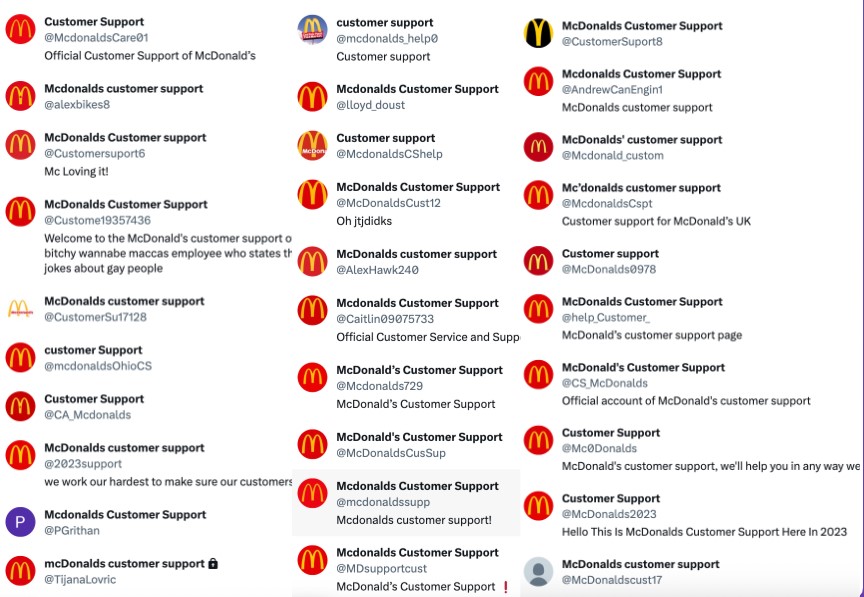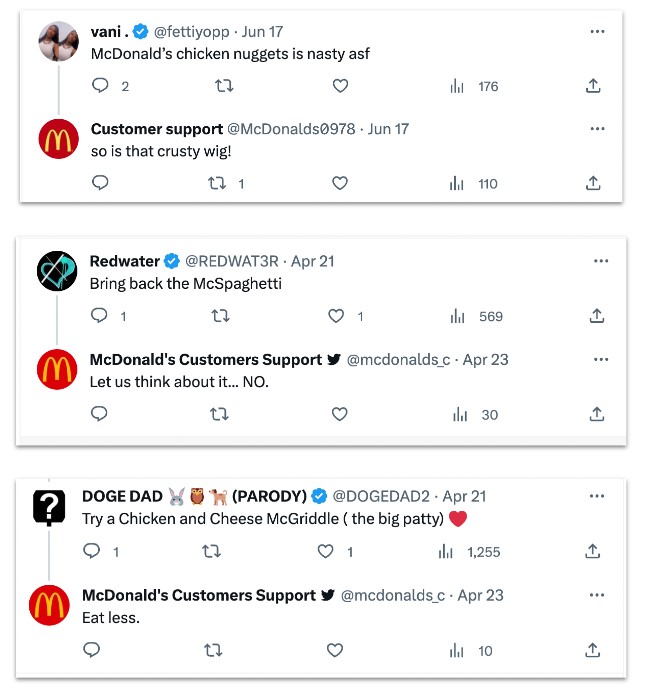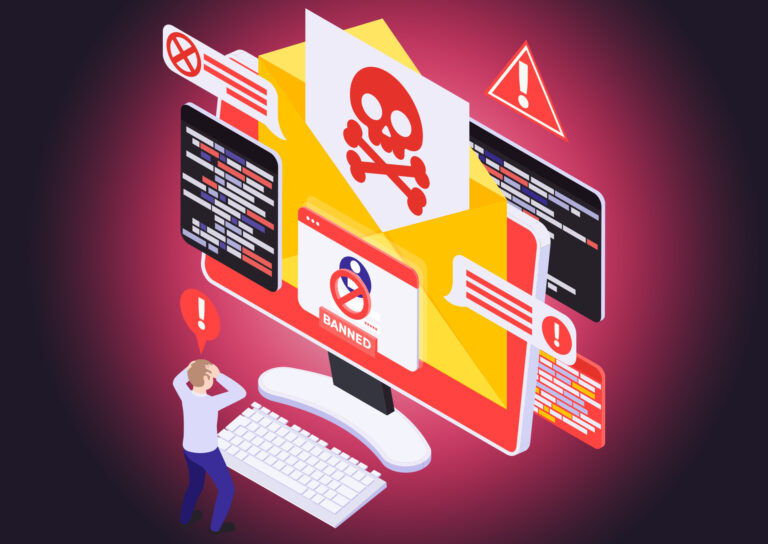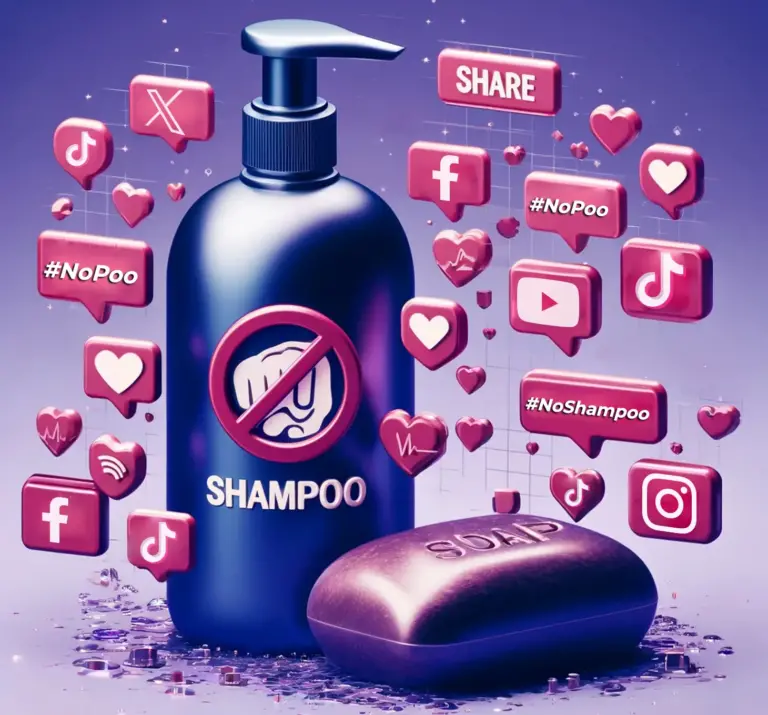McDonald’s is one of the most impersonated brands online.
McDonald’s Impersonations didn’t start in 2023. A 2017’s imposter account fooled not only the entirety of Twitter, but also McDonald’s themselves. Other fake McDonald’s accounts, as well as other scams, have misled McDonald’s customers around the world.
What changed in recent years is the increased ease and simplicity with which fake accounts can be generated through bot networks, a tool bad actors weaponize for their malicious intents. Their techniques were further enhanced in 2023 when GenAI came into our lives. Now, with one single click, millions of fake accounts can be enriched with authentic-looking fake content – posts, images and even videos.
In recent months, Cyabra has uncovered over 25 fake Twitter accounts posing as McDonald’s Customer Service. The profiles, which were all created in 2023, presented themselves as McDonald’s customer support and were responding to customers’ posts and mentions of the brand.

What Do the Fakes Want?
In other impersonation schemes, this would usually be the stage where phishing comes into the picture: the fake accounts pretending to be the real business would encourage customers to share their credit card information and quickly make use of it.
This was not the case here.
The impersonators were not set on stealing customers’ money. Their aim was completely different: they were impersonating McDonald’s to damage the company’s reputation. Using the guise of the real McDonald’s, the impersonators were interacting with customers in an offending, transgressive manner, going as far as taunting and insulting them, as can be witnessed in the examples below.
The impersonator profiles didn’t just respond to complaints – they responded to any mention of McDonald’s, including customers praising McDonald’s deals and meals.

Phishing impersonations start in public, usually with a fake profile that seeks the trust of the customer. Subsequently, the interaction shifts to a private setting, facilitating the initiation of credit card information theft. Up to this point, the fake profile would do their best to appear authentic.
However, a bad actor set on causing brand reputation damage using an impersonation account cares less about behaving in an authentic manner and more about the exposure and potential harm done to the brand. These fake McDonald’s accounts even went as far as engaging with the official McDonald’s page, as well as responding or reacting to comments on interactions the official page was making. This, of course, further contributed to the fake pages’ exposure.
Can You Identify Malicious Actors Impersonating Your Brand?
Impersonations are becoming a growing risk for large companies, even if they aren’t a huge brand such as McDonald’s. Identifying fake profiles and fake content on social media necessitates a completely new skill set from your team. Not only that, your brand’s followers on social media are expecting you to be the first to know of any impersonations or fake profiles using your name, and warn them.
Don’t wait for customers’ disappointment to turn into resentment and consumer rage. Cyabra provides accurate, cross-platform, multi-language, real-time social threat intelligence. Contact us to learn more or to set up a demo.


